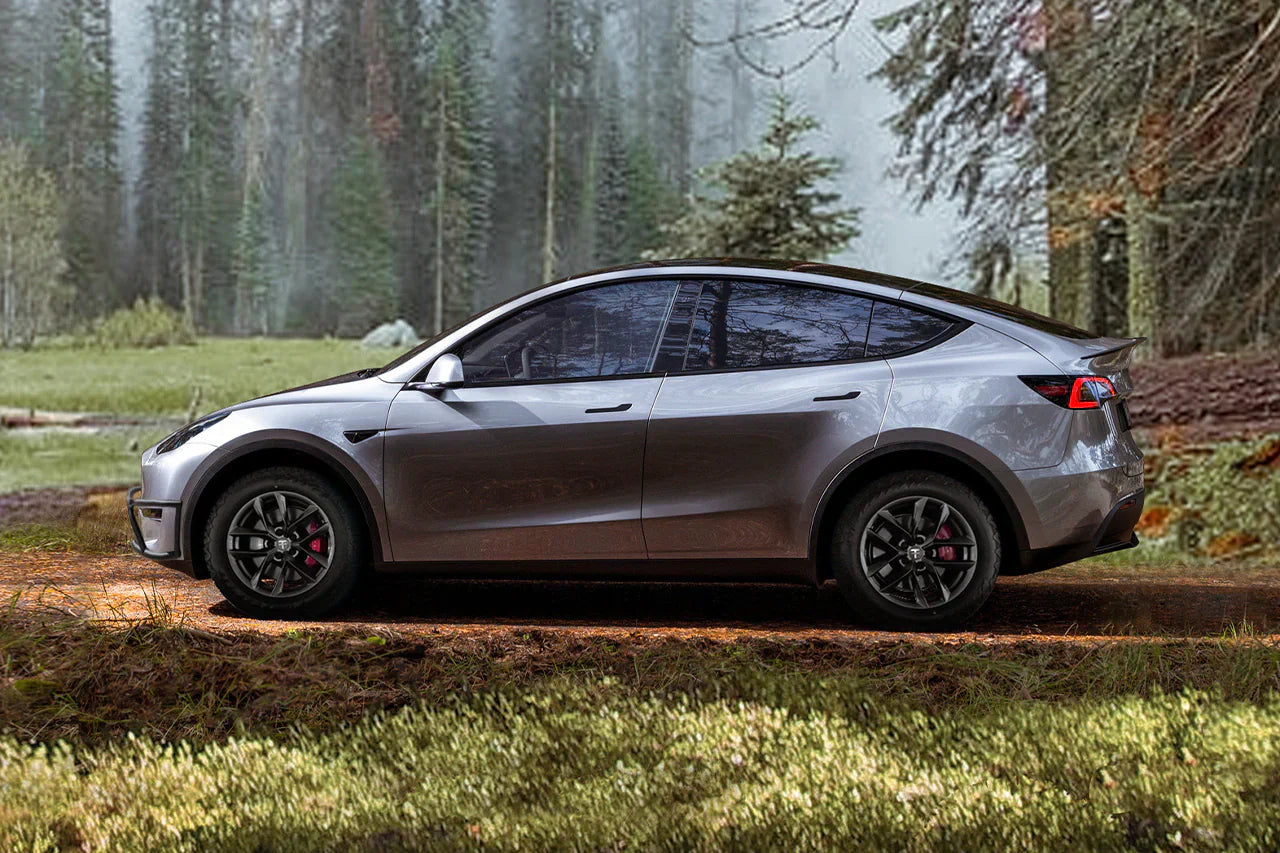Der Absatz von Elektrofahrzeugen in den USA nimmt in diesem Sommer stark zu. Der Juli war der zweitbeste Monat in diesem Segment. Laut neuen Daten von Kelley Blue Book und Cox Automotive sorgen Preissenkungen in Verbindung mit rekordhohen Anreizen für einen Nachfrageschub, da die Autohersteller ihre Lager vor dem Auslaufen der staatlichen Steuergutschriften für Elektrofahrzeuge schnell abbauen.
Tesla an vorderster Front bei Preissenkungen
Der durchschnittliche Transaktionspreis für ein neues Elektrofahrzeug fiel im Juli auf 55.689 US-Dollar , ein Rückgang von 2,2 % gegenüber Juni und 4,2 % gegenüber dem Vorjahreszeitraum. Tesla spielte erneut eine führende Rolle bei der Preissenkung. Der durchschnittliche Verkaufspreis des Unternehmens sank auf 52.949 US-Dollar , was einem Rückgang von 2,4 % gegenüber dem Vormonat und einem starken Rückgang von 9,1 % gegenüber Juli 2024 entspricht.
Mehrere Faktoren trugen zu Teslas niedrigerem Durchschnittspreis bei. Der Autohersteller setzte stärker auf seine günstigen Modelle Model 3 und Model Y , die einen größeren Anteil am Verkaufsmix ausmachten. Gleichzeitig bot Tesla im Juli höhere Anreize und machte seine Fahrzeuge damit in einem Markt, in dem Preissensibilität eine entscheidende Rolle spielt, wettbewerbsfähiger.

Rekordprämien in der gesamten Branche
Tesla war nicht der einzige Hersteller, der die Rabatte erhöhte. Autohersteller aller Branchen steigerten ihre Anreizausgaben auf ein Rekordniveau. Branchenweit betrugen die Anreize im Juli durchschnittlich 17,5 Prozent des Listenpreises eines Fahrzeugs , was einem Anstieg von 40 Prozent gegenüber dem Vorjahr entspricht.
Die erhöhten Rabatte spiegeln die Dringlichkeit der Autohersteller wider, Elektrofahrzeuge aus den Läden zu nehmen, bevor die Bundessteuergutschrift in Höhe von 7.500 Dollar – ein zentraler Bestandteil des Inflation Reduction Act (IRA) – gemäß der überarbeiteten Politik der Trump-Regierung am 1. Oktober ausläuft. Viele Hersteller sehen die Wochen vor Ablauf der Frist als letzte Chance, ein skaliertes Volumenwachstum zu sichern.
Elektrofahrzeugverkäufe erreichen historisches Niveau
Die Strategie zahlt sich eindeutig aus. Cox Automotive berichtete, dass US-Verbraucher im Juli mehr als 130.000 Elektrofahrzeuge kauften, 20 % mehr als im Vorjahr. Damit ist der Juli 2025 der zweitstärkste Monat für den Verkauf von Elektrofahrzeugen in den USA, übertroffen nur vom Rekord von Ende 2023.
„Die Dringlichkeit, die durch die Entscheidung der Regierung, die staatlichen Anreize für Elektrofahrzeuge auslaufen zu lassen, entstand, sollte kurzfristig eine starke Nachfrage nach Elektrofahrzeugen auslösen“, sagte Stephanie Valdez Streaty , Senior Analystin bei Cox Automotive. „Wenn man den letzten Monat als Maßstab nimmt, ist das Ziel erreicht. Die Verkäufe im Juli erreichten fast einen neuen Monatsrekord. Bei diesem Tempo könnte das dritte Quartal das stärkste aller Zeiten werden, da die Käufer stürmen, bevor die Anreize versiegen.“

Ausblick für die kommenden Monate
Branchenexperten gehen davon aus, dass der kurzfristige Aufschwung mit langfristigen Unsicherheiten einhergehen könnte. Zwar sorgt das Auslaufen staatlicher Fördermaßnahmen für einen vorübergehenden Absatzschub, doch nach Wegfall der Subventionen könnte der Markt schwächeln. Um die Dynamik aufrechtzuerhalten, müssen die Automobilhersteller möglicherweise wettbewerbsfähige Preise aufrechterhalten und weiter in die Aufklärung der Verbraucher über die Vorteile von Elektrofahrzeugen investieren.
Dennoch zeigen die Zahlen vom Juli, dass die Nachfrage nach Elektrofahrzeugen stark und stabil ist , wenn die Preise attraktiv sind und Anreize geschaffen werden. Ob dieser Verkaufsschub den Beginn eines neuen Wachstumszyklus markiert – oder eine vorübergehende Blase vor dem Auslaufen der Kredite – bleibt abzuwarten.
Empfohlene Lektüre: Tesla hat trotz Elon Musks Versprechen, sich neu auszurichten, mit Markenproblemen zu kämpfen








Aktie:
2026 Tesla Model Y vs. 2025 Ford Mustang Mach-E: Elektroauto-Rivalen treten erneut gegeneinander an
Gebrauchte Honda Prologue Elektrofahrzeuge verkaufen sich schnell, da die Nachfrage steigt